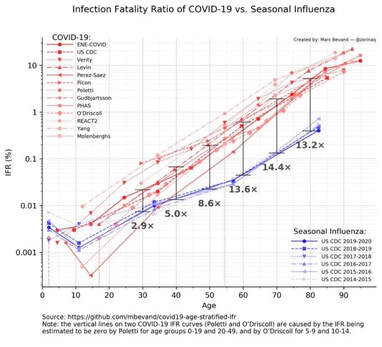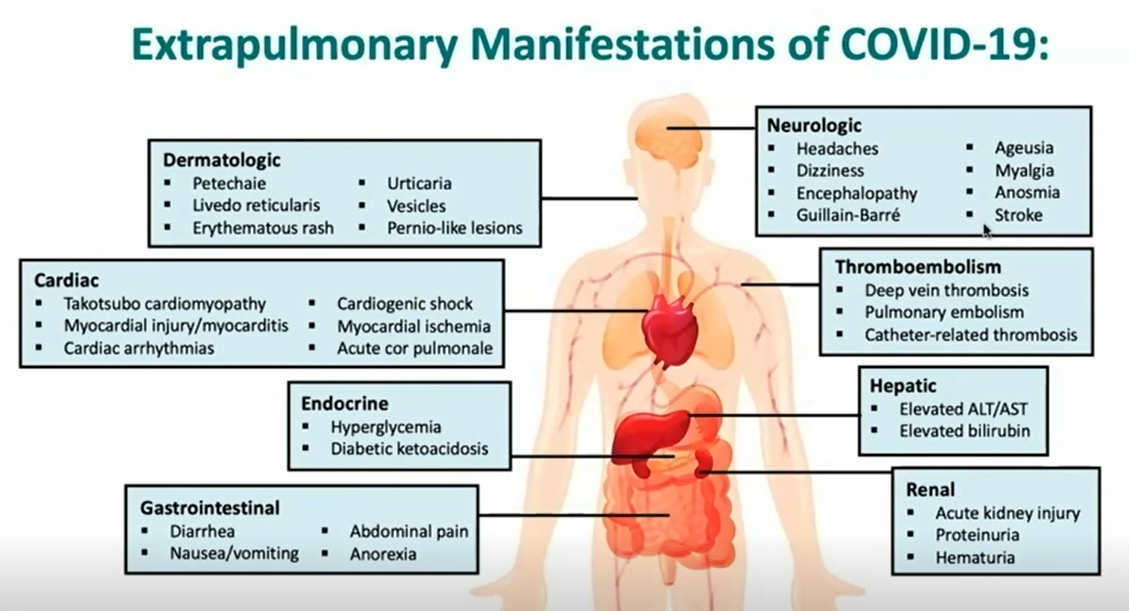COVID-19
Disease. Questions on COVID-19.
- Does SARS-2 cause a serious disease?
- What is long covid?
- Who will develop long covid?
Does SARS-2 cause a serious disease?
Yes, SARS-2 has a serious mortality and high long-lasting morbidity rates.
- SARS-2 infection is more lethal in all age group compared than influenza in all age groups. This might be a factor 3 for the youngest to a factor 14 for the elderly, albeit that these numbers could overestimate the mortality of influenza, by 5 to 50-fold, so the actual differences might be 15 to 700.
- In many countries, more than 1 out of 1000 people have died from the disease, although it is not always clear how many people were infected. In Peru even 0.6% of the population died of this disease, many countries in East-Europe and South America have 0,3% total mortality. Numbers from Africa are often incomplete.
- Only in East-Asia and Australia the mortality numbers remain low, due to their zero covid strategy.
What is long covid?
Long covid are highly divergent complaints after covid points to at least to tissue damage, brain inflammation and persistent infection. These complaints can be long and severe.
- If the virus spreads through the lungs it causes significant damage all over the lungs, especially in the small blood vessels that are responsible for the uptake of oxygen. The virus also targets cells through the ACE and infection will specifically kill the oxygen sensors in the body. Both these mechanisms seriously affect the regulation system of oxygen causing chronic tiredness in patients. Spreading through the blood to various organs could cause significant damage to the heart and diabetes.
- The virus might also spread to the brain, possibly directly from the nerve cells, which might cause the many psychological and neurological complaints seen in long covid, also in patients which had only mild disease.
- Also, virus persistence has been shown, and flare ups of the virus superantigen might cause long covid.
- Another option is reactivation of herpes virus infections such as EBV or CMV known from mononucleosis and suspected in chronic fatigue syndrome.
- Some scientists investigate if these mechanisms could trigger an autoimmune reaction leading to long covid, but that has not been shown directly.
- People that had serious COVID-19 might have a decreased life expectancy due to the acquired morbidities.
Who will develop long covid?
Long covid has been seen frequently in all age groups and all severities, in about 1 in 10 patients
- In contrast to acute disease, little is known about long covid.
- Long covid is probably a collection of diseases and mechanisms.
- The risk of long covid does not have a strong association with age or disease severity.
- About 5 to 15% still have serious complaints after 3 months. The number of diseased people declines over time but still about 1% might suffer more than a year.
- We do not know if it will cure spontaneously in all cases.


